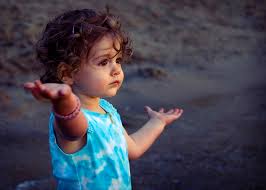记忆方法
将“daughter”分解为两部分:“da”和“ughter”。想象一个“da”字型的孩子在“laughter”(笑声)中玩耍,因为“daughter”在英语中通常指代带来欢笑和快乐的女儿。这种方法通过联想视觉图像和情感来帮助记忆。
以上内容由AI生成, 仅供参考和借鉴
中文词源
daughter 女儿
来自PIE*dhugheter, 女儿,可能来自拟声词,婴儿吸奶的声音。-ter, 词源同father, mother.
英语词源
- daughter
-
daughter: [OE] Daughter is an ancient word which goes back to Indo-European *dhughə tēr. Apart from Latin and the Romance languages (with filia and its descendants) and Celtic (Welsh has merch), all the Indo-European languages have inherited this form: Greek had thugátēr, Armenian dustr, Old Slavic dusti (whence Russian doch’), and Sanskrit duhitar-.
The prehistoric Germanic word was *dohtēr, which produced Gothic dauhtar, German tochter, Dutch dochter, Swedish dotter, Danish datter, and of course English daughter. It is not known where the Indo-European word ultimately came from, although correspondences have been suggested with Sanskrit duh- ‘milk’ and Greek teúkho ‘make’.
- daughter (n.)
- Old English dohtor, from Proto-Germanic *dokhter, earlier *dhukter (cognates: Old Saxon dohtar, Old Norse dottir, Old Frisian and Dutch dochter, German Tochter, Gothic dauhtar), from PIE *dhugheter (cognates: Sanskrit duhitar-, Avestan dugeda-, Armenian dustr, Old Church Slavonic dušti, Lithuanian dukte, Greek thygater). The common Indo-European word, lost in Celtic and Latin (Latin filia "daughter" is fem. of filius "son"). The modern spelling evolved 16c. in southern England. Daughter-in-law is attested from late 14c.
权威例句
- 1. It's plain that he adores his daughter, and the feeling is mutual.
- 明摆着他很喜欢自己的女儿,而且女儿也喜欢他。
- 2. His daughter was very active and noisy in the mornings.
- 他的女儿一到上午就很好动,吵吵闹闹的。
- 3. She even claimed the couple's daughter was possessed by the devil.
- 她甚至宣称那对夫妇的女儿被魔鬼附了体。
- 4. He wants to transfer some money to the account of his daughter.
- 他想把一些钱转到女儿的账户上。
- 5. She shared her daughter's disdain for her fellow countrymen.
- 她和女儿都瞧不起自己的同胞。

